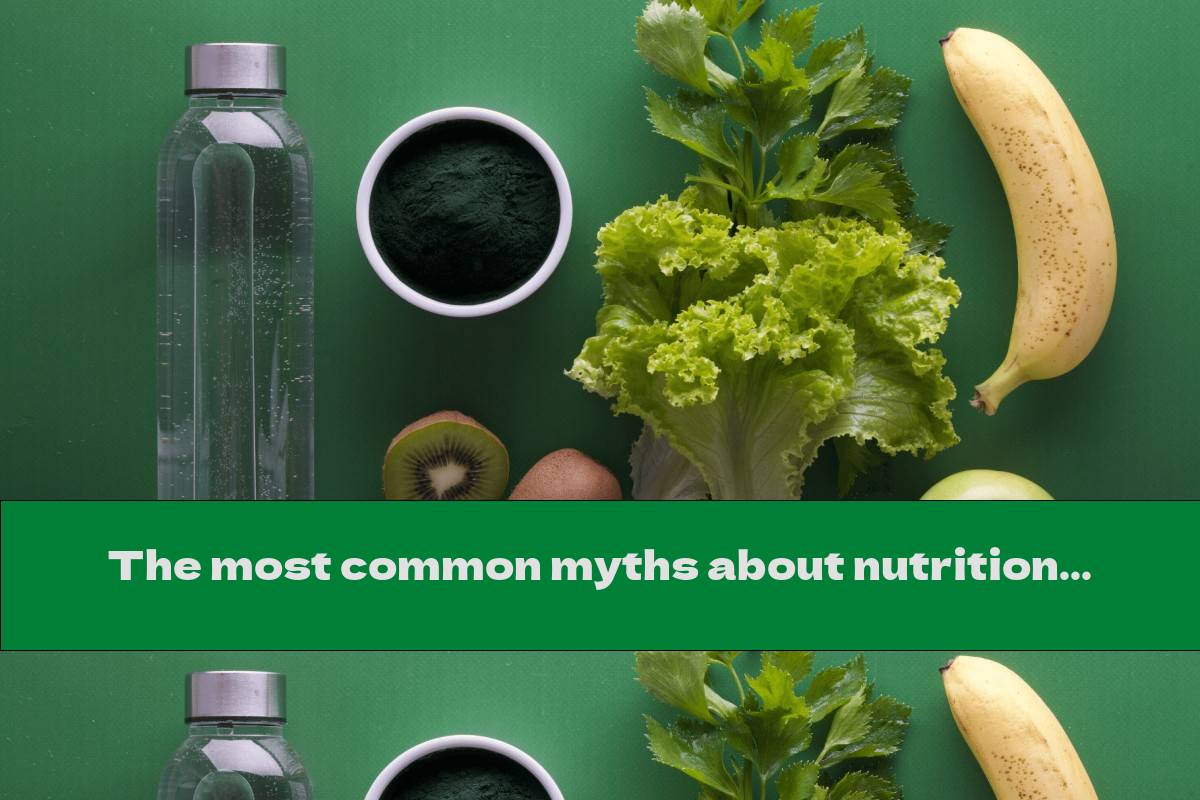The Most Common Myths About Nutrition For Weight Loss
 Author: Leticia Celentano
Time for reading: ~5
minutes
Last Updated:
February 16, 2026
Author: Leticia Celentano
Time for reading: ~5
minutes
Last Updated:
February 16, 2026

CHAPTERS (Table Of Contents)
When it comes to recommendations for proper nutrition for weight loss, it is very easy to get confused by conflicting information. New research may contradict research that appeared only a few years ago and will be replaced by even more recent facts soon after publication.
Myth # 1: Minus 500 calories – minus one kg a week
Like many beliefs about weight loss nutrition, this probably came about because it worked for many people, but the reality is much more complex. Unfortunately, there is no magic equation or simple formula for healthy weight loss. This myth is valid because it allows you to focus on reducing calories with the hope of achieving results in weight loss in a short period of time. However, this is a false hope that contributes to unrealistic expectations. The relationship between changes in calorie intake and weight loss is not linear. As the daily amount of calories consumed increases or decreases, the body's metabolic systems adjust to compensate for the change. This doesn't mean that changing your calorie intake doesn't affect your weight, but if you strictly follow the 500-calorie plan and don't see results, you're not alone.
Myth # 2: Proper nutrition
The phrase - " proper nutrition” - sounds very convincing and tempting, causing persistent positive associations. The problem is that this concept does not have a standard definition, so it is used in several ways, often contradicting each other. Among the variations of the concept of “proper nutrition for every day,” you can find the following: it is enough to give up " harms” - chips, soda, fast food; eat more raw fruits and vegetables; exclude grains from the diet; frequent fractional nutrition is necessary; complete exclusion of fats and carbohydrates is a good tactic, etc. The only true strategy out of all the variety of versions of the essence of proper nutrition, the effectiveness of which is supported by scientific data, is to consume more whole foods, avoiding over – processed ones.
Myth # 3: eating fatty foods leads to weight gain, in fact, fat doesn't make us fat
Despite numerous studies, expert comments, and news articles debunking this myth, the belief that fat is the main culprit for weight gain is deeply ingrained among most people. We all need a certain amount of fat in our diet to absorb vitamins and minerals, generate energy, maintain liver health, fight inflammation, and maintain muscle tone. But, it's important to keep in mind that not all fats are the same. There are healthy fats that increase “good " cholesterol, and harmful TRANS fats. By giving preference to low-fat products, you are likely to increase your intake of salt, sugar, and other harmful additives that manufacturers use to compensate for the loss of flavor in the process of degreasing the product. These supplements are actually more likely to promote weight gain. Healthy fat is what helps you get enough to avoid overeating and snacking, avoiding extra calories and weight gain. "Remove fat”, but not from the diet!
Myth # 4: calorie Deficit contributes to rapid weight loss
Another common myth. Many believe that if they start eating less during the day, they can lose weight quickly – a variation of the calorie reduction formula that usually doesn't work. This plan always causes unpleasant consequences and never leads to healthy, sustained weight loss. When calories are low, the body's metabolism slows down in order to conserve energy, so fewer calories are actually burned than usual. Read more about the causes of slowing down your metabolism here. In addition, a calorie deficit increases the risk of overeating. Instead of limiting your diet, consume a combination of vegetables and fruits, whole grains, and protein foods about every four hours to support your metabolism, and encourage weight loss or maintenance.
Related Articles
- The Ultimate Guide to Hickory Smoked Bacon in Nutrition and Healthy Eating
- Fruitskewers in Honey Syrup: Nutritional Benefits and Recipes
- The Ultimate Guide to Buffer 500 in Nutrition: Benefits and Usage
- Nutritional Benefits of Fruit Skewers in Honey Syrup: A Delicious and Healthy Recipe
- Nutrition Guide: Fruitskewers in Honey Syrup - Benefits, Recipes, and More
Top Nutrition Articles Today
- . E481: Uses, Benefits, Side Effects, and Safety Regulations
- . Granadilla - Health Benefits
- . Nutrition Trends 2026: Diet Plans, Recipes, and Wellness Tip...
- . First Complementary Foods: What And When To Give A Child (wi...
- . The Benefits of Myra E: A Powerful Vitamin E Supplement
- . The Power of Nori: Health Benefits and Nutritional Value
- . Nutrition Trends for 2026: Superfoods, Recipes, and Balanced...
- . The Nutritional Benefits of Quaker Oats: A Complete Guide
- . The Role of Micronutrients in Chicken: A Comprehensive Guide
- . Carbs to Sugar Conversion Chart: Monitoring Carb and Sugar I...